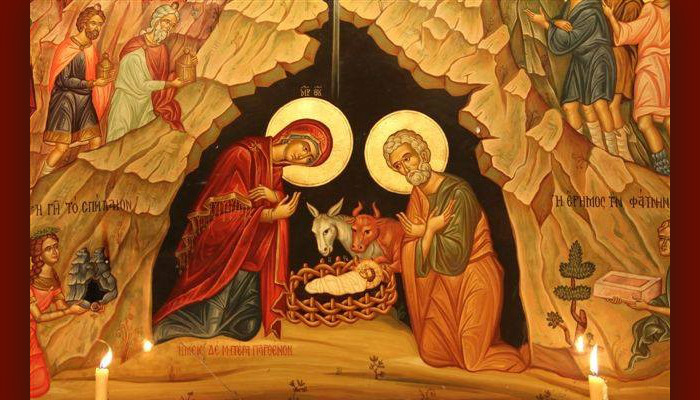What is God’s greatest miracle? When you consider the wondrous works of our triune God, what comes to mind as the most glorious, beautiful, and comprehensive display of the power, creativity, and love of God?
Do you immediately think of the creation of the material universe–ex nihilo–out of nothing as the premier miracle? If yes, consider the words of theological juggernaut Jonathan Edwards: “The creation of the world was a very great thing, but not so great as the incarnation of Christ.”
Living theologian Wayne Grudem pushes past Edwards in his Systematic Theology:
[The incarnation] is by far the most amazing miracle of the entire Bible–far more amazing than the resurrection and more amazing even than the creation of the universe. The fact that the infinite, eternal Son of God could become man and join himself to a human nature forever, so that infinite God became one person with finite man, will remain for eternity the most profound miracle and the most profound mystery in all the universe.

Desiring God executive editor David Mathis succinctly defines the incarnation writing, “[t]he incarnation refers literally to the in-fleshing of the eternal Son of God—Jesus becoming human. The doctrine of the incarnation says that the eternal second person of the Trinity took on humanity in the person of Jesus of Nazareth.”
I guess I was a bit startled at the claim of the incarnation surpassing the universe’s creation as far as the miraculous was concerned. And the claim that the miracle of the incarnation–the taking on of flesh and becoming human–is an even greater miracle than the resurrection of Christ was even more surprising. But this claim by Grudem is not an isolated opinion. Well-known and well-respected professor and author J. I. Packer indicates that the incarnation is also the most important doctrine in regards to Christ: “if you take away any of [Christology’s] component bricks, and particularly the reality of the Incarnation, which is the keystone of the arch, the whole structure falls down.”
This lofty regard for the import of the incarnation is not only held by contemporary theologians; the Dutch theologian Harman Bavinck, of whom Packer said “Like Augustine, Calvin, and Edwards, Bavinck was a man of giant mind, vast learning, ageless wisdom, and great expository skill,” declares that Jesus’ “incarnation is the greatest of all miracles, God himself descending and taking on our full humanity.”
Removed from any debate about the superiority of the incarnation miracle over and above others, what really struck me as I read these quotes and others–I’m preparing several sermons on the incarnation–was the fact that I do not hold the incarnation in as high regard as I ought. I do not devalue or disregard it, but I also do not appreciate this wonder of wonders the way I should.
With that in mind, here is a challenge for me and for you should you be willing. Let us, in this Advent season, meditate and contemplate the glory and beauty of the miracle of the incarnation. Let us try and push the limits of our current understanding of this doctrine to better appreciate its grandeur. And let us employ this Christmas season, when the incarnation’s importance is already in view, as a springboard for a yearlong and lifelong contemplation of the incredible yet ultimately unfathomable in-flesh-ment of the son of God.
And beyond this, I think it is very important to heed the sentiment in this quote from author Jared Wilson: “When we put our minds long to the idea of Jesus being one hundred percent God and simultaneously one hundred percent man, they naturally feel overwhelmed. The orthodox doctrine of the Incarnation is compelling, beautiful, biblically sensible, and salvifically necessary, but it is nevertheless utterly inscrutable. And that’s okay. In the end, the Incarnation is not for analysis but for worship.”
So my challenge, and hopefully yours, is to push the intellectual boundaries of our understanding of the incarnation. But, we do not want to stop there. Rather, let us allow those reflections to warm the affections of our heart which will, in turn, urge us on to worship. God is worthy of our worship; the incarnation is evidence of that.



Leave a Comment